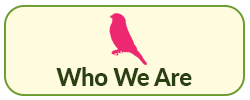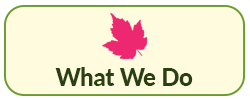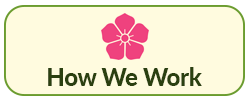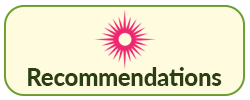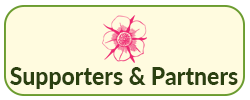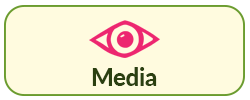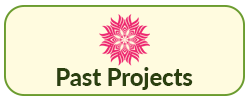You have arrived at The Boardwalk – a gateway to learning about who we are, what we do and how we work. Our journey is continually evolving. But here is the story so far.
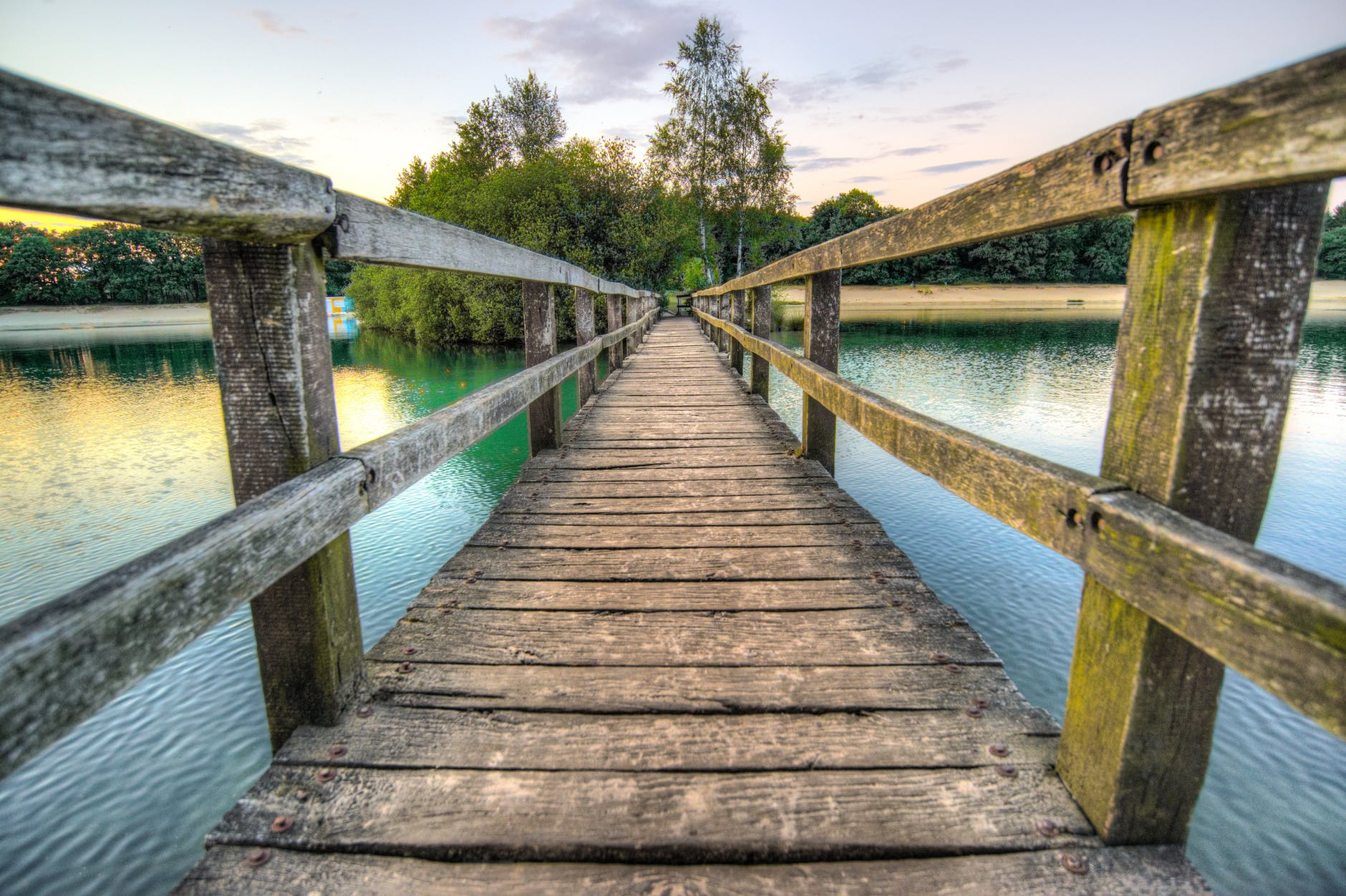
My name is Lucy Van Sambeek. I consider myself a ‘multipotentialite’ social worker, trauma-informed, narrative eco-therapist and community worker. That’s a bit of a mouthful and probably not your normal social work profile, but that’s how I see myself in my working life. To understand exactly how this came to be, you need to know a bit about my personal story too.
So here goes.
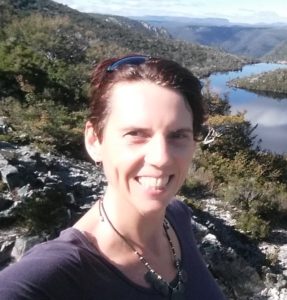 I grew up on a beef farm in country Victoria. I have the fondest memories of eating veges straight from the garden; beating up the paddocks on a homemade buggy; looking after animals; bike riding on country roads and driving the tractor. I didn’t spend much time inside, preferring to generally wander the paddocks amusing myself, kicking field mushrooms or throwing cow pats like discuses. I used to spend hours lying on a big branch in an old gum tree, making up stories in my head about the creatures that lived there.
I grew up on a beef farm in country Victoria. I have the fondest memories of eating veges straight from the garden; beating up the paddocks on a homemade buggy; looking after animals; bike riding on country roads and driving the tractor. I didn’t spend much time inside, preferring to generally wander the paddocks amusing myself, kicking field mushrooms or throwing cow pats like discuses. I used to spend hours lying on a big branch in an old gum tree, making up stories in my head about the creatures that lived there.
As you do, I left home at 21 thinking there was something better. I got married young, had a family, bought my first house, travelled overseas and moved to a big city to get a degree and pursue a career. It was about accumulating lots of stuff.
But Brisbane got crowded and I yearned to get back to a quieter life, so went back to Darwin in 2007 after graduating with my Social Work degree. I was drawn into bushwalking, taking up invitations to hike with friends who had the skills to navigate the escarpments of Kakadu. I heard about permaculture and joined a community garden. I also had the privilege of being out on country with Aboriginal Elders on the Tiwi Islands and an outstation in NE Arnhemland, where I felt, smelt, sensed and heard stories about their human-nature spiritual connection.
I spent over a decade in the Northern Territory working with Aboriginal women, men, children, families and communities who have been touched by the effects of domestic and family violence, child abuse, deep trans-generational grief and loss, mental health issues, alcohol and drugs, and other traumas. My greatest learning came from my Elder mentor, Elaine Tiparui and other strong women from the Tiwi Islands who would say over and over again something like:
“Our families need to go out bush. When they are away from the problems of the community, they can think ‘right way’ and start to heal. They are away from the violence, the drugs, the alcohol, the community fighting – they can de-stress, clear their mind and think about a plan of action.”
This made a lot of sense to me. I knew how well I felt in nature.
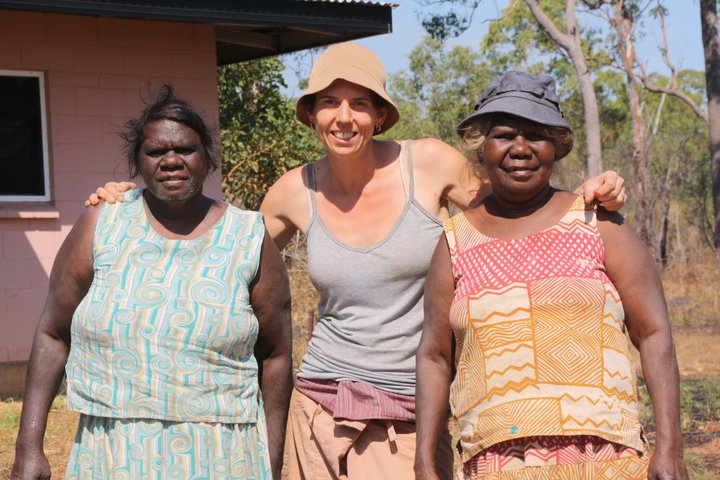 Nature became a great co-therapist in our work with clients. We developed counselling tools, group work and facilitated family healing bush camps, using the metaphor of the tree to help people give voice to the ‘storms’ in their lives. I also went on to self publish a children’s therapeutic picture book called ‘The Life of Tree’ with Christine Burarrwanga to help Aboriginal children talk about their experience of violence. Some of our best work came when we facilitated a Tiwi family healing ceremony back on country, for a girl who was reunited with her family after being taken away as a young child. My experience on the Tiwi Islands taught me that nature is a great healer and that going bush can be the best medicine.
Nature became a great co-therapist in our work with clients. We developed counselling tools, group work and facilitated family healing bush camps, using the metaphor of the tree to help people give voice to the ‘storms’ in their lives. I also went on to self publish a children’s therapeutic picture book called ‘The Life of Tree’ with Christine Burarrwanga to help Aboriginal children talk about their experience of violence. Some of our best work came when we facilitated a Tiwi family healing ceremony back on country, for a girl who was reunited with her family after being taken away as a young child. My experience on the Tiwi Islands taught me that nature is a great healer and that going bush can be the best medicine.
In 2013, I received an early diagnosis of the onset of thyroid disease or Hashimotos. This was a big shock. Not wanting to be on medication for the rest of my life, I embarked on a search to find a natural way to heal my thyroid. Not long after, I popped a disc in my back and spent three months in recovery. I had to give up my job and made big changes to my diet and stress levels. Suddenly, the small problems didn’t seem important anymore and I had an urge to declutter my house, aspire to a minimalist lifestyle or at least live more simply and lightly on the earth. But the crucial element to my healing was taking up meditation, slowing down and spending more time mindfully outdoors. No amount of physiotherapy could help my back (in fact, it made it worse). But walking in nature every day did. I’m pleased to say my thyroid is now completely healed.
I could now appreciate how lucky I was to have been so close to nature as a child, as I found myself coming back around to many of the practices that kept me grounded and healthy – hanging out in the vege patch, sitting with trees, just ‘be-ing’ in nature.
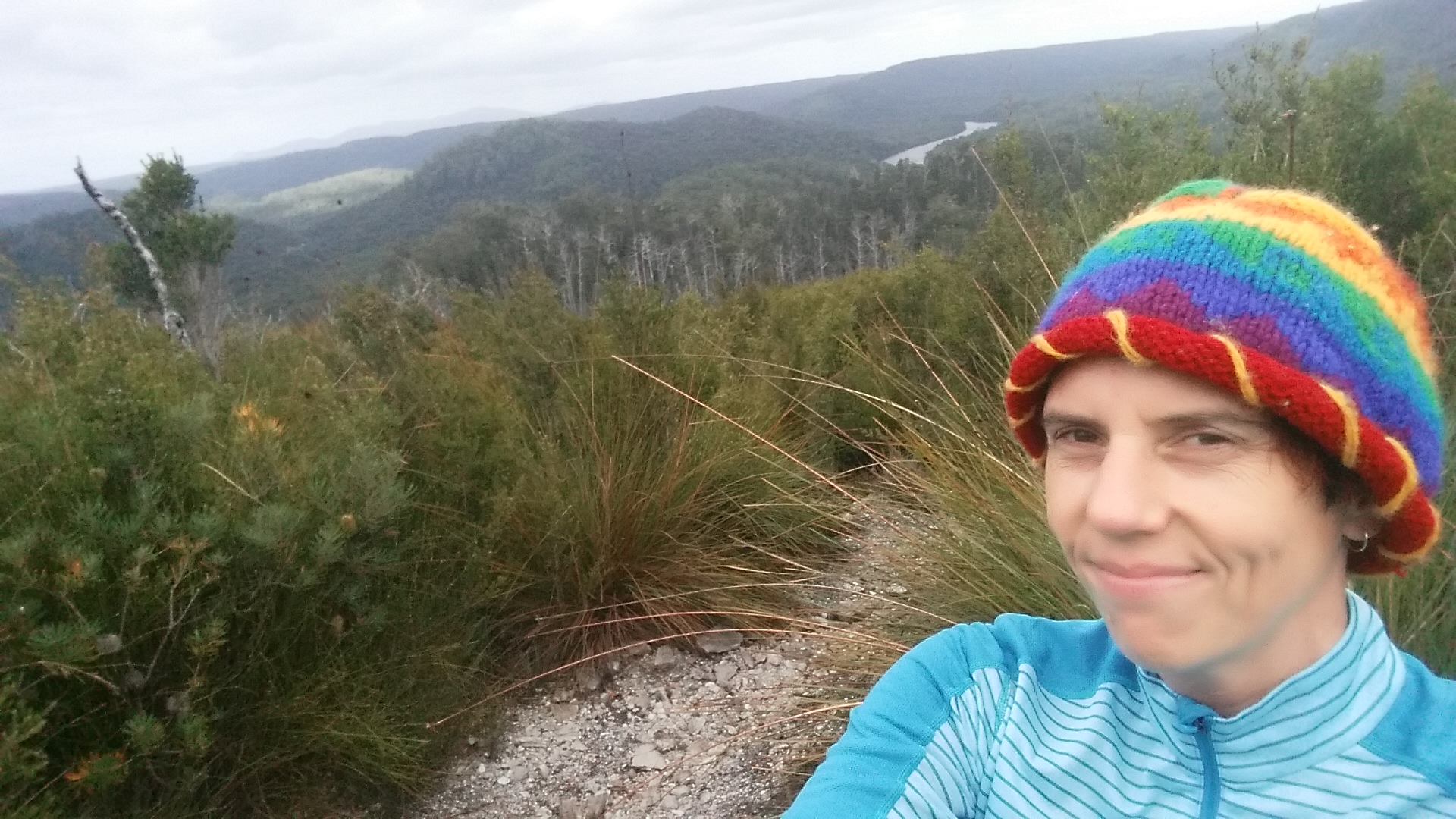 In 2017, a friend and I had booked a two week trip exploring the wilds of Tasmania, however her mother got sick and she wasn’t able to come. At first I was very nervous; I’d never travelled on my own before, and I constantly thought about my safety in the wilderness walking alone. But by the end of the trip, I had come to enjoy my own company so much, that I didn’t want to be around people. I was also in awe of the forests there, that boasted trees more than four hundred years old. The bush has always been important to my own health and well-being. But this experience took me to a level of nature connection and a sense of freedom, that I’d never experienced before.
In 2017, a friend and I had booked a two week trip exploring the wilds of Tasmania, however her mother got sick and she wasn’t able to come. At first I was very nervous; I’d never travelled on my own before, and I constantly thought about my safety in the wilderness walking alone. But by the end of the trip, I had come to enjoy my own company so much, that I didn’t want to be around people. I was also in awe of the forests there, that boasted trees more than four hundred years old. The bush has always been important to my own health and well-being. But this experience took me to a level of nature connection and a sense of freedom, that I’d never experienced before.
My experience working in the NT and my sole-trip trekking around Tasmania convinced me that nature had to be part of my therapeutic work going forward. I was interested in exploring what the Western world had to offer and went off to train in Nature and Forest Therapy.
Through all this I’ve managed to hold onto my very supportive husband, and now have two amazing teenage boys. In 2018, we decided to move to the Nambucca Valley and a more moderate climate, with a dream to grow our own food and offer a healing place for others who have experienced stress or trauma, to reconnect with the earth. It is a work in progress as we find ‘that place’. In the meantime, I am offering a variety of client services utilising a unique framework of ecotherapy, narrative therapy and art therapy in an outreach capacity across the Nambucca Valley and on-line. I am also available for contract work in other parts of Australia, if you think my approach fits with your organization and clientele.
My passion is to help people reduce stress, slow down, reconnect with what is important to them and recover from traumatic experience in and with nature. While I am concerned about the rapidly rising rates of anxiety, depression and other mental health problems, I am hopeful and excited about the growing body of scientific research demonstrating the benefits of nature connection to our physical, mental, spiritual and social health. The West is just catching up to what Indigenous peoples have always known.
Feel free to wander further along The Boardwalk and I hope to see you in nature soon.

